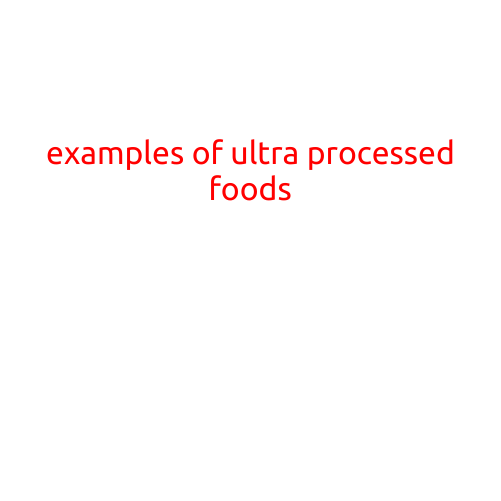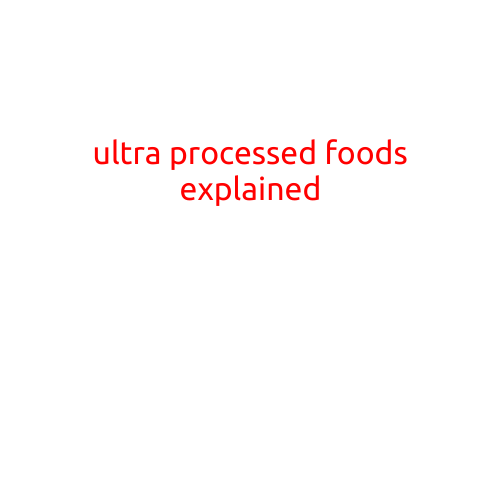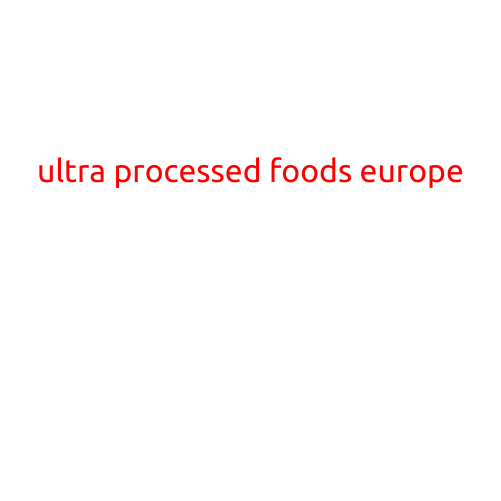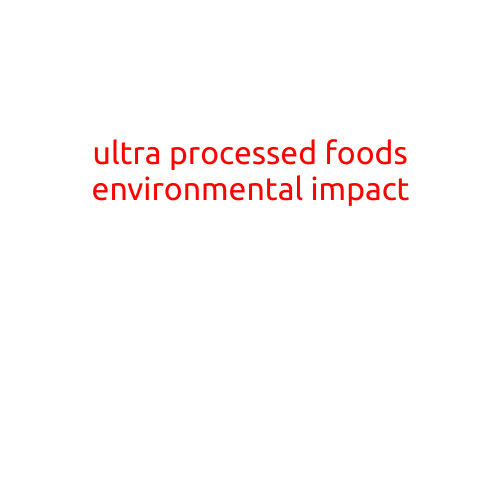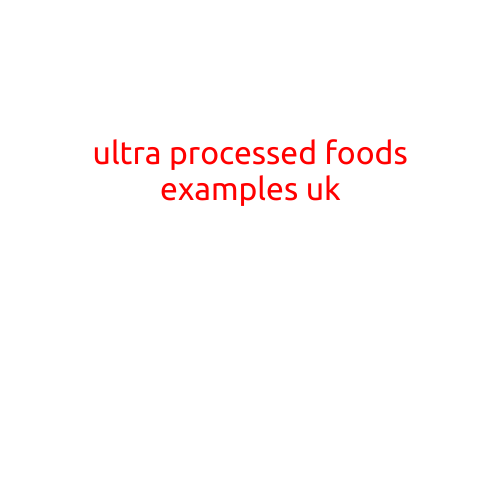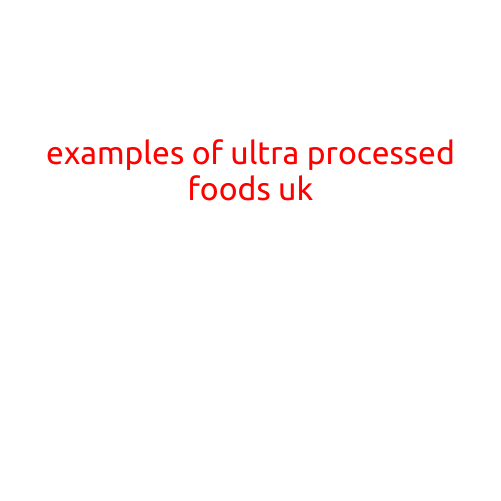
Examples of Ultra-Processed Foods in the UK: What to Avoid and Why
In recent years, the concept of ultra-processed foods has gained widespread attention in the UK and around the world. These foods are manufactured through a series of industrial processes that transform raw ingredients into products with little to no nutritional value. The term “ultra-processed” was coined by researchers at the University of São Paulo in Brazil, who analyzed the ingredients and production processes of thousands of food products.
In this article, we’ll explore examples of ultra-processed foods commonly found in the UK and highlight the reasons why they should be avoided.
What are Ultra-Processed Foods?
Ultra-processed foods are products that have undergone multiple industrial transformations, such as extrusion, frying, and chemical composition. These foods typically contain a mixture of substances extracted from whole foods, such as proteins, sugars, and fats, as well as added preservatives, flavor enhancers, and coloring agents.
Examples of Ultra-Processed Foods in the UK
- Ready Meals
Ready meals, such as frozen pizzas, microwaveable rice dishes, and TV dinners, are prime examples of ultra-processed foods. They often contain a combination of dehydrated vegetables, processed meats, and preservatives that are reformulated to maximize shelf life and convenience.
- Baked Goods
Many baked goods, like croissants, muffins, and cakes, contain a high percentage of refined flour, sugar, and unhealthy fats. When baked at high temperatures, these ingredients become largely devoid of nutrients and can lead to blood sugar spikes and insulin resistance.
- Sugary Snacks
Sugary snacks, such as bagged potato chips, cookies, and crackers, are designed to be addictive and palatable. They often contain trans fats, artificial sweeteners, and added sugars that can contribute to weight gain, type 2 diabetes, and heart disease.
- Fast Food
Fast food, including burgers, fries, and fried chicken, is a staple of many UK diets. These foods are often cooked to an unhealthy crisp and contain a mixture of processed meats, unhealthy fats, and added preservatives.
- Canned Goods
Canned goods, such as soups, stews, and sauces, may be convenient, but they often contain added preservatives, salt, and sugar. While canned foods can be a useful backup option, they should not replace whole, minimally processed foods in your diet.
Why Ultra-Processed Foods Should be Avoided
Consuming ultra-processed foods regularly has been linked to:
- Increased Risk of Chronic Diseases
A diet rich in ultra-processed foods has been associated with a higher risk of heart disease, type 2 diabetes, and certain cancers.
- Nutrient Deficiencies
Ultra-processed foods often lack essential nutrients like fiber, vitamins, and minerals, leading to deficiencies over time.
- Unhealthy Gut Bacteria
The lack of fiber and nutrients in ultra-processed foods can disrupt the balance of gut bacteria, leading to digestive issues and inflammation.
- Addiction and Overeating
The combination of sugar, salt, and unhealthy fats in ultra-processed foods can activate the brain’s reward centers, making it difficult to stop consuming them.
How to Avoid Ultra-Processed Foods
To reduce your intake of ultra-processed foods, try the following:
- Cook from Scratch
Prepare meals using whole, minimally processed ingredients to ensure you’re getting the nutrients your body needs.
- Read Labels
Check food labels for ingredients and allergen warnings. If a product contains a long list of unrecognizable ingredients, it may be best to avoid it.
- Focus on Whole Foods
Emphasize whole, unprocessed foods like fruits, vegetables, whole grains, lean proteins, and healthy fats in your diet.
By being mindful of the foods you consume and avoiding ultra-processed options, you can reduce your risk of chronic disease and promote overall health and well-being.
